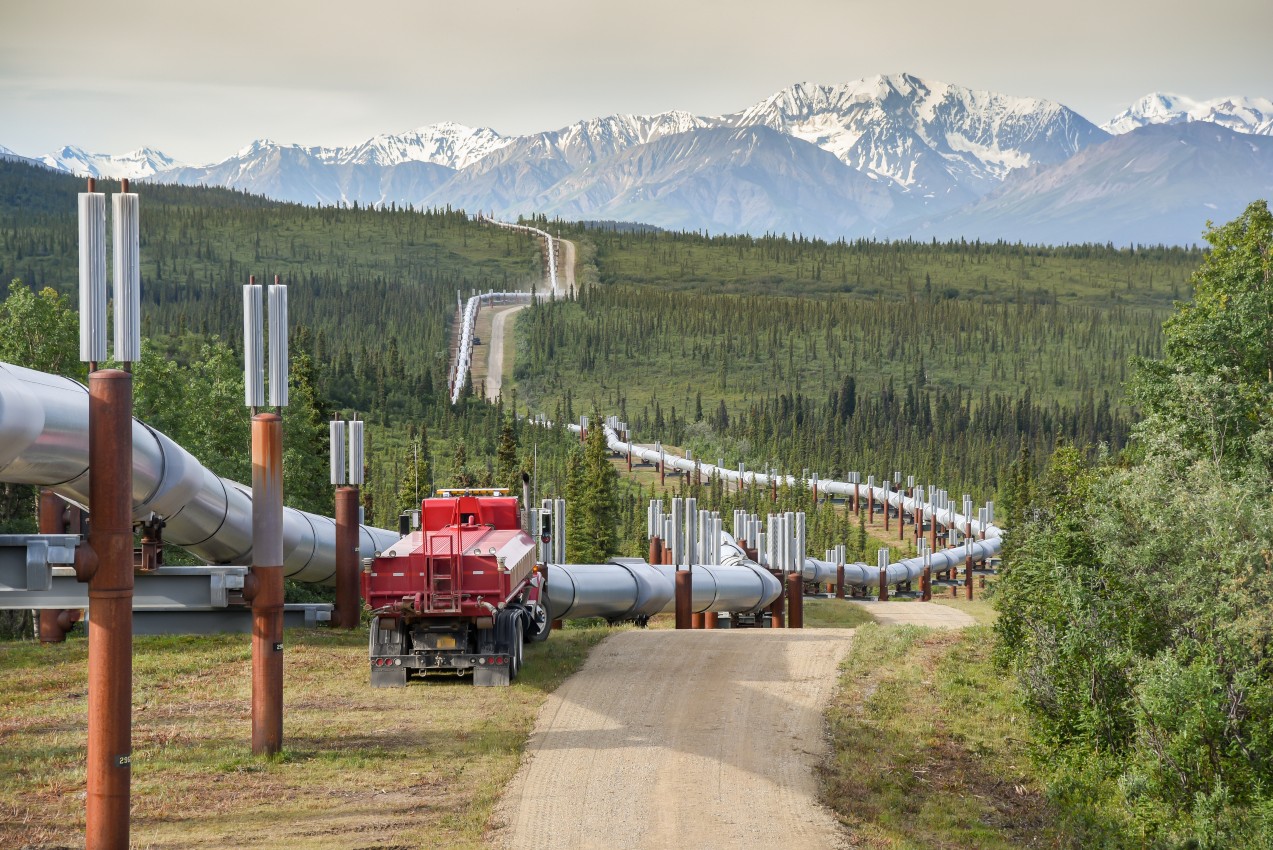What House Republicans have planned for the oil and gas industry

After a messy confirmation process for House Speaker Kevin McCarthy, Republican leadership last week began pushing forward an oil-and-gas-sponsored wish list, sometimes with an eye toward winning key Democratic votes.
Media coverage of high-profile messaging bills dominated Congress’s first full week of work, with reports focusing on legislation about abortion, competition with China, and claims of unfair treatment by federal investigators. However, House Republicans and some Democrats also signaled a plan to introduce bills that would boost oil and gas production and speed the permitting process for pipelines and other large facilities.
In a conversation with the CEO of the American Petroleum Institute (API), U.S. Rep. Cathy McMorris Rodgers of Washington state – in her first interview after becoming chair of the House Energy and Commerce Committee last week –said Republicans are working on a “package of bills” that would “secure American energy.”

“There’s a lot in these packages, but I would say it’s focusing on securing American resources, it is on permitting reform, it is on modernizing American energy infrastructure, [and] LNG exports,” said Rodgers, who also promoted carbon-capture and nuclear technologies during the interview.
Rodgers, a career Republican politician who served in the Washington legislature before rising to party leadership in Congress, supported McCarthy during his contentious bid for speaker. Rodgers is also a staunch supporter of hydropower dams on the Columbia and Snake rivers in Washington, opposing environmentalists’ efforts to remove them to improve wildlife habitat.
Joining Rodgers as speakers at the American Petroleum Institute event were Democrats from energy-producing states, including Henry Cuellar and Lizzie Fletcher of Texas and Mary Sattler Peltola, from Alaska.
The event coincided with the release of an American Petroleum Institute policy roadmap calling for multiple benefits to fossil fuel industries, including the following:
· Open up more federal lands and offshore waters for drilling and expand the total amount of leases offered each year.
· Stop the EPA from requiring that oil refineries with hydrofluoric acid units abide by its chemical disaster prevention rule.
· Block the Security and Exchange Commission’s proposed climate disclosure requirements.
· Revise the National Environmental Policy Act to shorten the timeline for environmental reviews.
· Authorize major energy projects such as the Keystone XL pipeline as “critical to the national interest.”
· Give the Department of Energy sole permitting authority over LNG plants.
· Stop efforts to require the Federal Energy Regulatory Commission to factor in climate, environmental justice, and landowners’ interests in its review of projects.
· Rescind President Donald Trump’s tariffs on foreign steel.
· Make more types of carbon capture facilities eligible for tax breaks, along with facilities that use natural gas to produce hydrogen.
“We’re ready to put in the time this year, with this administration, with this new Congress to craft and enact bipartisan solutions to make, move, and improve American energy,” American Petroleum Institute CEO Mike Sommers said.
Though President Joe Biden and the Democratic-controlled Senate can block bills coming from the House, some Republican bills could get bipartisan support. One recent example was HR 22, banning the sale of oil from the U.S.’s Strategic Petroleum Reserve to China. Key Democrats co-sponsored the bill, which the House approved on Jan. 12 on a 331-97 vote.
“America’s Strategic Petroleum Reserve is meant for true energy supply disruptions, like those caused by hurricanes and natural disasters,” said Rodgers, who sponsored the legislation. “Draining our strategic reserves for political purposes and selling portions of it to China is a significant threat to our national security.”
But some Democrats pointed to the bill as a piecemeal solution. Democrat Frank Pallone of New Jersey pointed to the fact that the Republicans in Congress in2015 pushed for a lifting of a 40-year ban on crude exports to foreign countries. Since then, exports to China have risen to tens of thousands of barrels per month, though they made up only 2 percent of oil exported from the strategic reserve. Pallone didn’t mention that former President Barack Obama signed the 2016 spending bill that lifted the export ban. (At the moment, at least 18 projects to build or expand crude oil export terminals are underway or in planning stages in the U.S., according to the Oil & Gas Watch database.)
“Republicans’ first energy bill this Congress isn’t about investing in the resiliency of our electric grid or making American energy cleaner and cheaper,” Pallone said on the House floor. “Instead, they’re just recycling an old one-page bill that takes a minor step in undoing the damage that they themselves created.”
On Jan. 10, Rodgers’ committee held a roundtable featuring a spokesperson for the Independent Petroleum Association of America,the leader of a Black conservative think tank, and the owners of farming and truck stop companies.
The discussion centered on rising energy costs in 2022 and impacts to small businesses and consumers. Members blamed Biden, Democrats, and climate action and spoke as if production was down in 2022, despite last year being No. 1 for natural gas production and No. 2 for oil production in U.S. history.
“The difficulties are all above the ground, not below ground geologically,” said committee member Michael Burgess of Texas. “The purpose of this committee is going to be to dial back some of those problems that have really just accelerated in the last two years.”

Committee members avoided talking about the role oil and gas companies’ exports to foreign countries played in raising fuel prices. Energy economists have noted how a rise in LNG exports has contributed to some of the highest U.S. natural gas prices seen since 2008. A 2020 Government Accountability Office report states that exports of oil left less domestic petroleum for U.S. refining companies. Because gasoline prices are largely determined by a global market, more competition with foreign buyers hurt American refiners.
Efforts to advance the Republican energy agenda could also involve another House committee, less active so far than Rodgers’. Arkansas Republican Bruce Westerman, an engineer and forester first elected to Congress in 2015, was confirmed last week as House Natural Resources chair. Westerman last year introduced a bill that would have stopped the president from issuing moratoria on new leases and expanded more land for leasing on- and offshore.
The push to open federal lands for oil and gas leasing comes despite red flags raised by government watchdogs. A November 2021 Department of Interior report cited decades of warnings by the Government Accountability Office and the agency’s inspector general into the leasing program, which it said “fails to provide a fair return to taxpayers, even before factoring in the resulting climate costs.”
The program also “inadequately accounts for environmental harms to lands, waters, and other resources; fosters speculation by oil and gas companies to the detriment of competition and American consumers; extends leasing into low potential lands that may have competing higher value uses; and leaves communities out of important conversations about how they want their public lands and waters managed,” the report states.
It’s unclear whether the Republicans’ new proposals will include reviving the Keystone XL pipeline. As recently as February 2021, Republicans introduced legislation that would have restarted the project to increase the amount of high-polluting Canadian tar sands oil imported into the U.S. The Obama Administration canceled permits for the northern portion of Keystone XL in 2015; as of 2022, parent company TC Energy says it will not revive the project.
A December 2022 Department of Energy report concluded that “the impact on consumer prices from Keystone XL, had it been completed, was inconclusive, particularly in light of the changes that have occurred in Canadian and U.S. crude oil markets since the … pipeline was proposed.”
The pipeline would have created more than 21,000 direct and indirect U.S. jobs during the two years of its construction, the report states. However, it would have led to only 50 permanent jobs once operational.















